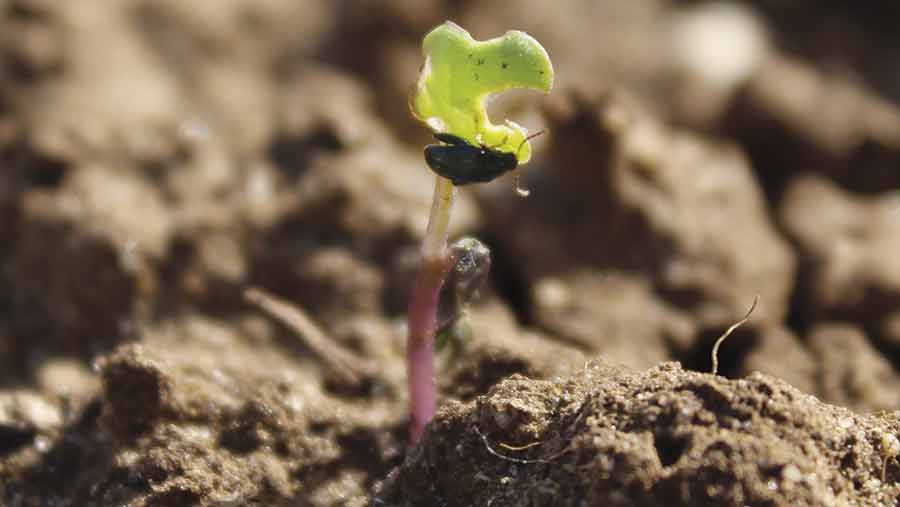Neonics unlikely to return, warns top Rothamsted scientist
 © Oli Hill
© Oli Hill A ban against neonicotinoids to control cabbage stem flea beetle in oilseed rape is likely to stay, a leading agricultural scientist has warned.
Lin Field, of Rothamsted Research, was speaking to agronomists at an annual conference organised by the Association of Independent Crop Consultants.
Her comments come days after it emerged the EU has delayed a review of its moratorium on neonicotinoids, including to control flea beetle in rape.
See also: EU food watchdog delays neonicotinoids review
Professor Field said she had recently been in Brussels to discuss the neonicotinoid ban.
“I get the impression that it may well be extended,” she told conference delegates at Whittlebury Hall, Northamptonshire, on Wednesday (11 January).
“I think the knives are out for neonicotinoids – certainly the current neonicotinoids – I will be amazed if we ever see them back.”
Prof Field said she believed the mood in Brussels was to extend the ban, which might be widened to include pyrethroids used by growers as an alternative to neonicotinoids.
Risk to bees
The European Food Safety Authority (Efsa) has confirmed that a scientific review of the risks of neonicotinoids to bees will now be published this autumn.
Farm leaders had hoped that findings from review – which were expected to be published this month – would lead to a lifting of neonicotinoid restrictions.
The NFU said extending the neonicotinoid ban for use on wheat, a crop which is not bee-pollinated, would be unjustified based on current scientific evidence.
But Dave Timms, a bee campaigner for Friends of the Earth, said: “It’s now clear the current restrictions will stay in place until at least 2018 with only limited, temporary exemptions possible.”

